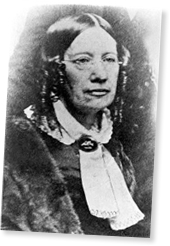User:Kathrineliu/History project
Summary
[edit]
In nineteenth century, women represent the weaker sex and less freedom or rights than male. The unfair satiation led to a break out of women fighting for their right, called women movement. By early eighteenth century, women and slaves are both in a lower class than white men. In the minds of men, whether reformers or ordinary citizens, constituted the suitable conditions of the weaker sex. Women believe that every human being should be equal,and that females should be treated the same way white men and by everyone.
Struggles
[edit]Women suffered throughout their lives, because they didn't have equal rights and freedom like white men did. In society women were under men, and they were treated like they were from the lower class. Women lived their day to day lives under the men's control. "Throughout history, women have usually had fewer rights and a lower social status than men."[1] Women also struggled in the work force, therefore they couldn't find good paying jobs that provided work for women. Men thought that women weren't capable to work as hard as men. "Women workers were poorly paid, segregated and 'Female' jobs,and treated as temporary workers by employers, labor unions, and the public." Female jobs were like a teacher. [2]In Even though women struggled they still fought for their rights.
Fighting for women rights
[edit]
Although women were expected to spent their energies and time on home and families. Some women did not agree with with the theory of women in society. They organised a Women's rights movement. Catharine Beecher was a really important character in the women's rights movement. She started the idea of changing women's life, that fight of their freedom and what they deserved. Women movement are those that have engaged in political efforts to change the roles and status of women in society. The first women's movements cause large response to the modern urban and industrial society. The women's rights meeting took place in New York, in July 1848. The Seneca Falls Convention was the first women's rights convention's in United States history. Lucretia Mott and Elizabeth Cady Stanton both attended the 1840 antislavery convention. Eight years later, the women organized a Convention of Women's Rights.
Achieved rights
[edit]"The convention passed 12 resolutions. Signed by 68 women and 32 men, the resolution protested the lack of the legal and political rights of women."[3] They urged women to demand these rights. From the first women's movement , they gained suffrage for women. They also proved to some men that they deserved more rights, making more people be pro-feminism. "Also, they have varied from one time and place to another, depending on local customs regarding the treatment of women, on national political values, and on economics conditions."[4] But in almost every case, women's movement have own greater freedom for women to act as self-sufficient individuals, rather than as dependent wives and daughters. They were able to attend school or achieved education and women got more jobs choices. The most achievement was women were in a higher class in society that have more equal rights as white men.
References
[edit]- ^ The World Book Encyclopedia. Women's Movement. Vol. 21. Spinescape:Chicago. 2012. Print.
- ^ Hymowitz, Carol, and Michaele Weissman. A History Of Women In America. New York:Bantam Books, 1978. Print.
- ^ Winkler, Allan M., Linda Reed, Elisabeth Perry, Andrew Cayton. America: Pathways to the Present. Boston: Upper Saddle River,2007. Print. 330.
- ^ The World Book Encyclopedia. Women's Movement. Vol. 21. Spinescape:Chicago. 2012. Print.
